Nirmatrelvir is an inhibitor of the SARS-CoV-2 main protease (Mpro), also referred to as 3C-like protease (3CLpro) or nsp5 protease. Inhibition of SARS-CoV-2 Mpro renders it incapable of processing polyprotein precursors, preventing viral replication.
- Nirmatrelvir inhibited the activity of recombinant SARS-CoV-2 Mpro in a biochemical assay at concentrations achievable in vivo. Nirmatrelvir was found to bind directly to the SARS-CoV-2 Mpro active site by X-ray crystallography.
Ritonavir is an HIV-1 protease inhibitor but is not active against SARS-CoV-2 Mpro. Ritonavir inhibits the CYP3A-mediated metabolism of nirmatrelvir, resulting in increased plasma concentrations of nirmatrelvir.
This medication is recommended. It is has been granted an emergency use authorization by FDA for the treatment of mild-to-moderate coronavirus disease (COVID-19) in adults and pediatric patients (12 years of age and older weighing at least 40 kilograms or about 88 pounds) with positive results of direct SARS-CoV-2 testing, and who are at high risk for progression to severe COVID-19, including hospitalization or death. Nirmatrelvir/ritonavir should be initiated as soon as possible after diagnosis of COVID-19 and within five days of symptom onset.
Recommendations are based on EPIC-HR, a Phase2/3 randomized clinical control trial assessing the efficacy of nirmaltrelivir/ritonavir vs. placebo in reduction of hospitalization and or death through day 28. The use of nirmaltrelivir/ritonavir within 5 days of symptom onset in individuals at risk for progression to severe disease reduced the relative risk of hospitalization or death through 28 days by 88%.
Clinical Circumstances
What severity of COVID-19 would you recommend use of this medication (i.e. mild, moderate, or severe illness; outpatient vs inpatient use)?
- Nirmatrelvir/ritonavir is recommended for treatment of mild-to-moderate coronavirus disease 2019 (COVID-19) in adults and pediatric patients (12 years of age and older weighing at least 40 kg) with positive results of direct severe acute respiratory syndrome coronavirus 2 (SARS-CoV-2) viral testing, and who are at high risk* for progression to severe COVID-19, including hospitalization or death. Treatment should be initiated within 5 days from the onset of symptoms.
Would you recommend restricting this medication in some way (for example, “can be considered in consultation with ID”)?
- Medication should not be started in patients hospitalized for COVID-19, although patients who have started nirmatrelvir/ritonavir prior to hospitalization should be allowed to complete a 5 day course of treatment.
- Due to significant drug interactions consultation with Pharm D may be considered in patients taking other therapeutic agents. Refer to the following resources outlining the management of significant interactions:
- Therapy should be offered to patients at high risk for progression to severe COVID-19 as defined by CDC.
Medication-specific Considerations
Based on the current literature, what dosing is recommended?
- 300 mg nirmatrelvir (two 150 mg tablets) with 100 mg ritonavir (one 100 mg tablet) with all three tablets taken together orally twice daily for 5 days
Is drug monitoring required? If so, what is suggested?
- No specific drug monitoring is required. Adverse events should be reported to FDA MedWatch.
Supply and procurement consideration: Is treatment currently available for use in our system, and if so are shortages anticipated? Are there currently restrictions or other barriers?
- Current availability of nirmatrelvir/ritonavir is limited due to both limited drug supply and increased demand with recent increase in community spread. Supply is expected to improve, however, treatment is currently restricted to patients with M-MASS score greater or equal to 4.
Use in special populations.
- Pregnancy: No data available to assess safety and/or efficacy
- Society of Maternal Fetal Medicine (SMFM) supports the use of Paxlovid in pregnant persons with mild-moderate COVID-19
- Patients who were pregnant or breastfeeding were excluded from the EPIC-HR trial.
- COVID-19 in pregnancy is associated with adverse maternal and fetal outcomes, including preeclampsia, eclampsia, preterm birth, premature rupture of membranes, venous thromboembolic disease, and fetal death.
- Lactation: No data available to assess safety and/or efficacy
- Patients of Reproductive Potential: Use of ritonavir may reduce the efficacy of combined hormonal contraceptives.
- Advise patients using combined hormonal contraceptives to use an effective alternative contraceptive method or an additional barrier method of contraception
- Pediatric: Not authorized for use in pediatric patients younger than 12 years of age or weighing less than 40 kg.
- Renal Impairment:
- Mild (eGFR >60 to <90 mL/min): No dose adjustment
- Moderate (eGFR >30 to <60 mL/min): Reduce dose of Paxlovid to 150 mg nirmatrelvir (1 tablet) and 100 mg ritonavir twice daily for 5 days
- Severe (eGFR <30 mL/min): Not recommended for use until more data is available
- Hepatic Impairment:
- Mild or moderate (Child-Pugh Class A or B): No dose adjustment
- Severe (Child-Pugh Class C): Not recommended for use
- Clinical Considerations:
- No dosage adjustment is required when co-administered with other products containing ritonavir or cobicistat.
- Patients on ritonavir- or cobicistat-containing HIV or HCV regimens should continue their treatment as indicated.
 = Supporting use article = Supporting use article |
 = Neutral Article = Neutral Article |
 = Contradicting use article = Contradicting use article |

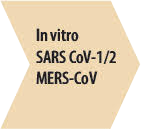    |
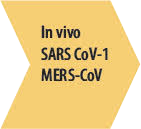 |
  |
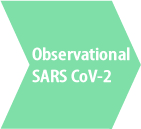 |
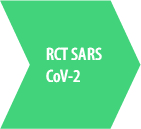  |
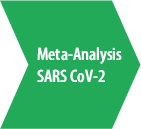 |
List of major peer-reviewed studies
 Peer-reviewed randomized controlled trials in the treatment of COVID-19:
Peer-reviewed randomized controlled trials in the treatment of COVID-19:
 EPIC-HR: Hammond, J, Leister-Tebbe H, Gardner A, et al. Oral Nirmatrelvir for High-Risk, Nonhospitalized Adults with Covid-19. N Engl J Med. 2022 Feb 16. doi: 10.1056/NEJMoa2118542.
EPIC-HR: Hammond, J, Leister-Tebbe H, Gardner A, et al. Oral Nirmatrelvir for High-Risk, Nonhospitalized Adults with Covid-19. N Engl J Med. 2022 Feb 16. doi: 10.1056/NEJMoa2118542.
Randomized controlled trial of high-risk patients enrolled in EPIC-HR study (n= 2,246) confirmed prior results of interim analysis showing PAXLOVID™ (nirmatrelvir [PF-07321332] tablets and ritonavir tablets) reduced risk of hospitalization or death by 89% (within three days of symptom onset) and 88% (within five days of symptom onset) compared to placebo; no deaths compared to placebo in non-hospitalized, high-risk adults with COVID-19. Results of the study have not been published to date and not available for review.
Study Participants: 18 y/o or older with at least 1 risk factor for progression to severe disease or were 60 y/o with a confirmed SARS-COV-2 PCR and symptom onset of </-5 days. Participants were excluded if they were vaccinated or had a previous history of SARS-COV-2.
Primary Endpoint: The proportion of subjects with COVID-19 related hospitalization or death from any cause through Day 28
Results: Paxlovid Arm - 8 events (0.8%) vs. Placebo Arm - 66 events (6.3%) translating to a relative risk reduction of 89% (95% CI 75% to 94%).
Secondary outcome: change in viral load. There was an approximately 0.9 log10 copies/mL greater decline in viral RNA levels in nasopharyngeal samples through Day 5 in the Paxlovid arm as compared to Placebo
Conclusion: Treatment of symptomatic Covid-19 with nirmatrelvir plus ritonavir resulted in a risk of progression to severe Covid-19 that was 89% lower than the risk with placebo, without evident safety concerns.
 In Vitro SARS CoV-2
In Vitro SARS CoV-2
 Owen DR, Allerton CMN, Anderson AS, et al. An oral SARS-CoV-2 Mpro inhibitor clinical candidate for the treatment of COVID-19. Science. 2021;374(6575):1586-1593. doi:10.1126/science.abl4784
Owen DR, Allerton CMN, Anderson AS, et al. An oral SARS-CoV-2 Mpro inhibitor clinical candidate for the treatment of COVID-19. Science. 2021;374(6575):1586-1593. doi:10.1126/science.abl4784
In silico, in vitro, in vivo study demonstrating suppression of viral replication in vitro in several cell lines: Vero E6, human adenocarcinoma–derived alveolar basal epithelial (A549) cells, and differentiated normal human bronchial epithelial (dNHBE) cells. In vivo activity against mouse adapted SARS-CoV-2 was studied in the mouse model. Twice daily dosing prevented weight loss in infected treated animals compared to infected controls, reduced virus levels were seen in treated animals with nirmatrelvir plasma concentrations consistent with in-vitro studies. The study overall supported use of nirmatrelvir/ritonavir in treatment of COVID-19 Li P, Wang Y, Lavrijsen M, et al. SARS-CoV-2 Omicron variant is highly sensitive to molnupiravir, nirmatrelvir, and the combination [published online ahead of print, 2022 Jan 20]. Cell Res. 2022;1-3. doi:10.1038/s41422-022-00618-w
Li P, Wang Y, Lavrijsen M, et al. SARS-CoV-2 Omicron variant is highly sensitive to molnupiravir, nirmatrelvir, and the combination [published online ahead of print, 2022 Jan 20]. Cell Res. 2022;1-3. doi:10.1038/s41422-022-00618-w
In vitro evaluation of nirmatrelvir activity against the omicron variant of SARS-CoV-2. In human lung epithelial Calu-3 cell model nirmatrelvir demonstrated inhibition of viral replication of wild type and omicron variant of SARS-CoV-2 at concentrations achievable in vivo. The study supports use of nirmatrelvir/ritonavir in treatment of omicron and wild type SARS-CoV-2. Vangeel L, Chiu W, De Jonghe S, et al. Remdesivir, Molnupiravir and Nirmatrelvir remain active against SARS-CoV-2 Omicron and other variants of concern. Antiviral Res. 2022;198:105252. doi:10.1016/j.antiviral.2022.105252
Vangeel L, Chiu W, De Jonghe S, et al. Remdesivir, Molnupiravir and Nirmatrelvir remain active against SARS-CoV-2 Omicron and other variants of concern. Antiviral Res. 2022;198:105252. doi:10.1016/j.antiviral.2022.105252
In vitro evaluation of nirmatrelvir activity against several variants of concern of SARS-CoV-2. In the Vero E6-GFP cell model nirmatrelvir demonstrated inhibition of viral replication of all variants of concern, including omicron. The study supports use of nirmatrelvir/ritonavir in treatment of omicron and wild type SARS-CoV-2.
Major peer-reviewed studies providing context for therapy
 In vivo SARS CoV-2
In vivo SARS CoV-2
 Catlin NR, Bowman CJ, Campion SN, et al. Reproductive and developmental safety of nirmatrelvir (PF-07321332), an oral SARS-CoV-2 Mpro inhibitor in animal models [published online ahead of print, 2022 Jan 31]. Reprod Toxicol. 2022;108:56-61. doi:10.1016/j.reprotox.2022.01.006
Catlin NR, Bowman CJ, Campion SN, et al. Reproductive and developmental safety of nirmatrelvir (PF-07321332), an oral SARS-CoV-2 Mpro inhibitor in animal models [published online ahead of print, 2022 Jan 31]. Reprod Toxicol. 2022;108:56-61. doi:10.1016/j.reprotox.2022.01.006
In vivo evaluation of reproductive and developmental safety of nirmatrelvir. Potential effects of NMV were evaluated up to the limit dose of 1000 mg/kg/day in ICH guideline embryo-fetal development studies in rats and rabbits, and a fertility and early embryonic development study in rats. There were no effects on male and female fertility or early embryonic development in rats, and no severe manifestations of developmental toxicity in rats or rabbits.
List of pre-peer reviewed/pre-publication studies providing context for therapy
List of pre-peer reviewed/pre-publication studies providing context for therapy
- Singh RS, Toussi SS, Hackman F, Chan PL, Rao R, Allen R, Van Eyck L, Pawlak S, Kadar EP, Clark F, Shi H, Anderson AS, Binks M, Menon S, Nucci G, Bergman A. Innovative Randomized Phase 1 Study and Dosing Regimen Selection to Accelerate and Inform Pivotal COVID-19 Trial of Nirmatrelvir. medRxiv 2022.02.08.22270649; doi: https://doi.org/10.1101/2022.02.08.22270649
Phase I clinical study of safety and tolerability of nirmatrelvir with and without ritonavir in healthy human subjects. In several dosing regimens, including supratherapeutic, nirmatrelvir/ritonavir was safe and well tolerated. Nirmatrelvir exposure and half-life were considerably increased by ritonavir, enabling selection of nirmatrelvir/ritonavir dose and regimen for phase 2/3 trials (300/100 mg BID), to achieve concentrations continuously above those required for 90% inhibition of viral replication in vitro.
Current Clinical Trials
Current clinical trials can be found here: https://clinicaltrials.gov/ct2/show/NCT04960202